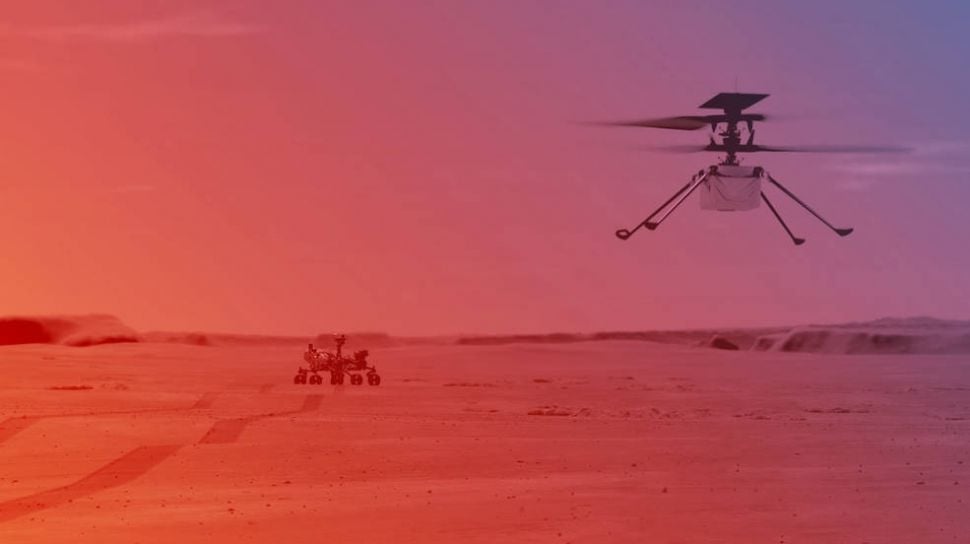Suara.com – NASA helicopter of Mars, Ingenuity, touching the surface of the Red Planet after being ejected from the stomach of the Perseverance explorer.
The space agency announced it on April 4. Ingenuity’s first flight will take place a week later.
“The #MarsHelicopter landing confirmed! The 471 million km journey over @NASAPersevere ended with a final 4-inch drop from the rover’s belly to the surface of Mars today,” wrote the NASA JPL Twitter account on April 4.
Weighing 1.8 kilograms, the Ingenuity is a small, solar-powered helicopter that relies on a rechargeable battery to keep its system warm during cold Mars nights.
Also Read:
NASA Delays Ingenuity’s Flight on Mars
Once removed from the explorer’s stomach, the helicopter will begin to use its internal battery to power the vital heater.
“This heater keeps the interior of the helicopter about 45 degrees Fahrenheit from the cold Mars night, where temperatures can drop to minus (-) 130 degrees Fahrenheit,” said Bob Balaram, chief engineer of NASA’s Mars Helicopter project. Space.com, Monday (5/4/2021).
The heater can also protect key components such as batteries and some sensitive electronics from harm in very cold temperatures.
Mission team members will monitor Ingenuity’s battery temperature and performance over the weekend to ensure the helicopter is in good working order.
Ingenuity is scheduled to make its first flight on April 11, with data from the test flight reaching Earth on April 12.
Also Read:
There’s Pink Moon! Entering April 2021, these are 5 interesting celestial phenomena
The $ 85 million mission is the first helicopter to be sent to another planet designed to test future flying vehicle technology.
If all goes well, Ingenuity will make a series of longer flights over the Jezero Crater, where Perseverance landed on February 18 for 31 Mars days.
NASA is planning a series of tests before that first flight to power Ingenuity’s four rotor blades, in which the rotors will rotate at up to 2,537 revolutions per minute.
As a new technology, the helicopter is only part of NASA’s Perseverance rover mission.
![Ingenuity's landing on Planet Mars. [NASA]](https://media.suara.com/pictures/653x366/2021/04/05/58064-pendaratan-ingenuity-di-planet-mars.jpg)
The robot is expected to spend two years exploring the Jezero Crater, hoping to find signs of ancient life on Mars.
– .


